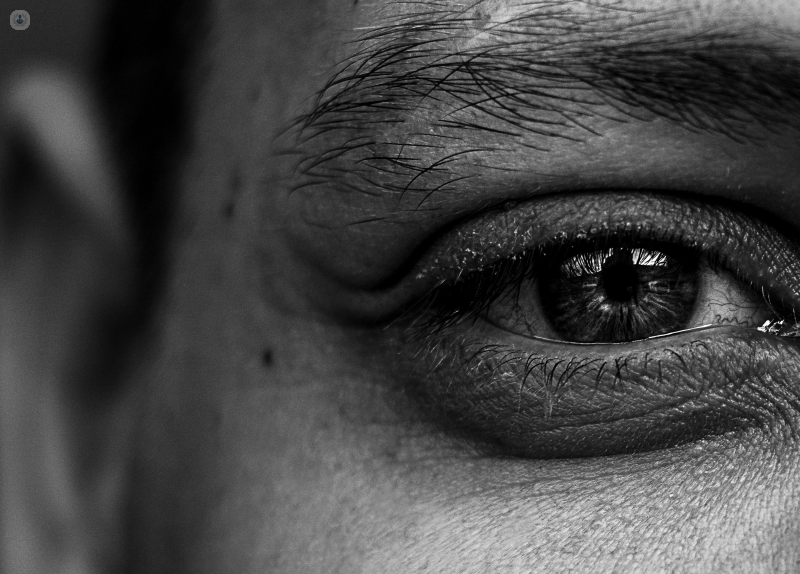Your checklist: what to ask your LASEK surgeon
Written by:Going for surgery on your eyes can be worrisome and you may have numerous questions circling through your mind. Ensuring you fully understand the procedure and results beforehand can be enough to eliminate any doubts and provide you with more confidence in the procedure. Dr CT Pillai is one of the most experienced laser eye surgeons in the UK and has provided answers to a small list of questions to help inform you better about your upcoming LASEK eye surgery.

What results can I expect?
Generally, after LASEK treatment, you can expect vision similar to what you have in your glasses or contact lenses, possibly a little bit more.
It is important to note that not everyone is able to achieve 20/20 vision. This does not mean that there’s something wrong, it merely means that their best achievable vision isn’t at 20/20 on a vision chart. When you attend your initial consultation, your surgeon will advise you on the predicted outcome of the procedure.
Are there potential risks of the surgery?
LASEK eye surgery is considered a safe procedure, however it’s still surgery, and all surgery comes with some element of risk. However, the procedure has been around for decades now and the diagnostic screening that’s carried out to determine suitability and predict longevity of the results is far more advanced than previously. This means that as long as the screening process is thorough and analysed by a specialist ophthalmic surgeon, it’s usually low risk.
Common side effects and complications include dry eyes, discomfort during the first few days and sometimes, due to the natural healing of the eyes, retreatment is required. It’s important to do the appropriate research about your surgeon and the aftercare provided.
Does my age and health history affect results?
There are various factors which can affect the results but age does play a part. After the age of 40, we all start to lose the ability to focus on close objects such as our phone, books, and eventually computer screens. This is a perfectly natural part of the ageing process, so it’s important to factor this in when enquiring about laser eye surgery. You should expect to require reading glasses at some point.
Sometimes clinics will deliberately leave one eye slightly short-sighted in order to allow for some unaided reading vision. This is called monovision or blended vision and will be discussed with you by your surgeon if appropriate.
General health is an important factor to take into consideration when determining suitability for LASEK eye surgery. It is important that the eyes are able to heal following the procedure. There are some health conditions that contradict laser surgery; these include autoimmune disease, uncontrolled diabetes, glaucoma, and many others.
Will results last for life or will I need another LASEK operation?
Generally, provided LASEK is carried out once your prescription is stable, the results should last long term. Between 2-5% of patients will require retreatment after their first procedure. This is because of the natural healing process, and a residual prescription is found.
Normally clinics with comprehensive aftercare programmes include this at no additional charge within the first year. At my clinic, Advanced Vision Care, we provide a full year of aftercare which includes any retreatment, if required.
Occasionally, those who have LASEK done in their early twenties may find that due to the way the eyes naturally change, they may develop a very small prescription 10-15 years after their treatment, and if significant, this can always be retreated.
How can I prepare for the procedure?
Your surgeon will request that you don’t wear your contact lenses for a set period of time before your procedure. This varies from clinic to clinic so make sure you read the literature provided.
It is advisable to not wear eye make-up the day before your treatment to ensure that the area around your eyes are completely clean on the day.
The eyes can be uncomfortable and light sensitive for the first two to four days after the procedure. This is because the top layer of cells (epithelium) need to heal. Most people will not want to go out and socialise during this period, nor will they want to carry out work related tasks. It is a good idea to clear your schedule and arrange childcare if needed for those days so you can rest and recover in peace.
In my case, are there any alternative treatment options that you could recommend?
Suitability for treatment varies on a case by case basis, and recommendations can only be made by the clinic who carried out your initial consultation. Reasons for being recommended LASEK surgery include thin corneas, previous corneal scarring from infections or contact lens related ulcers, or those who play contact sports.
Other forms of refractive surgery include LASIK, implantable contact lenses (ICL) or lens replacement surgery. Enquire with your surgeon if you would like alternative treatment options.
To make a consultation with Dr CT Pillai, visit his profile and book online.


